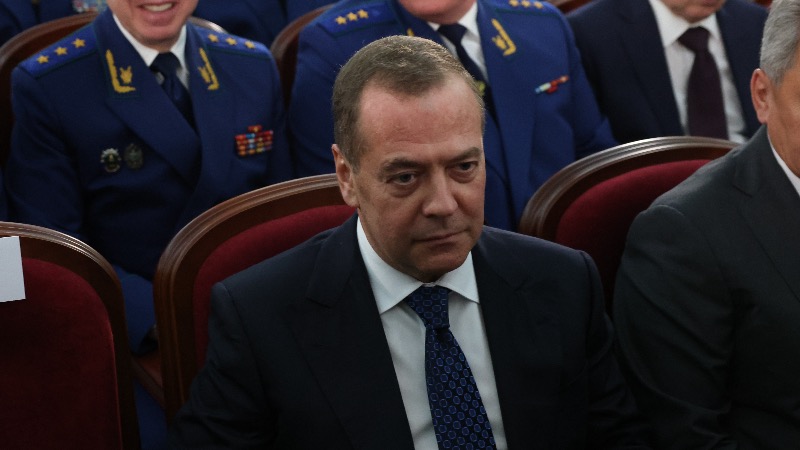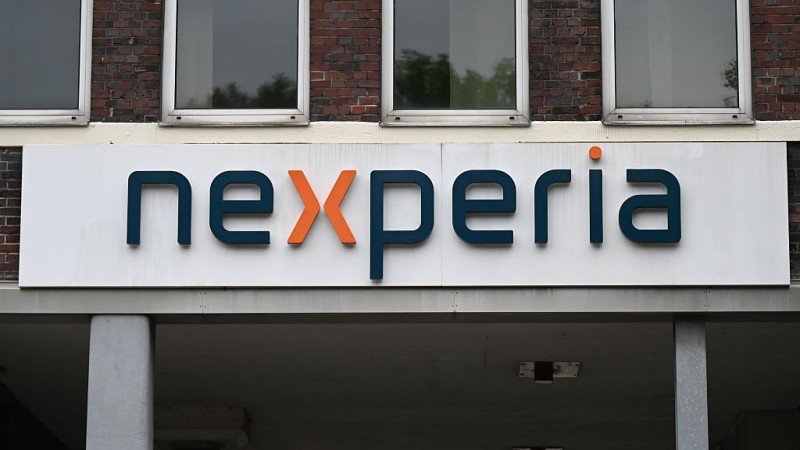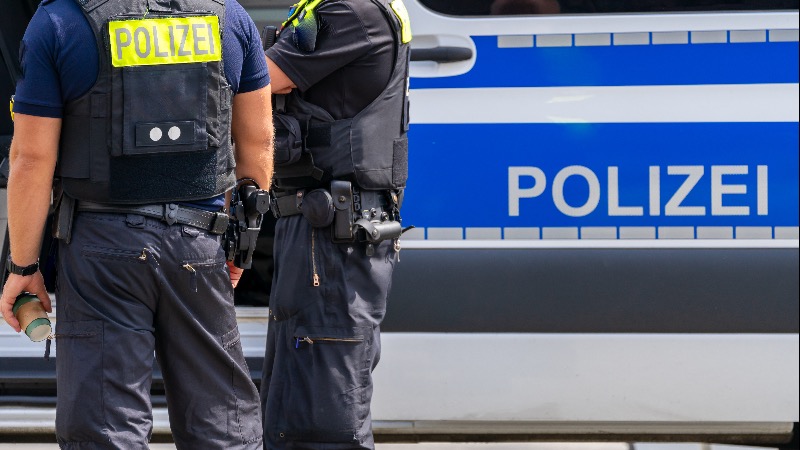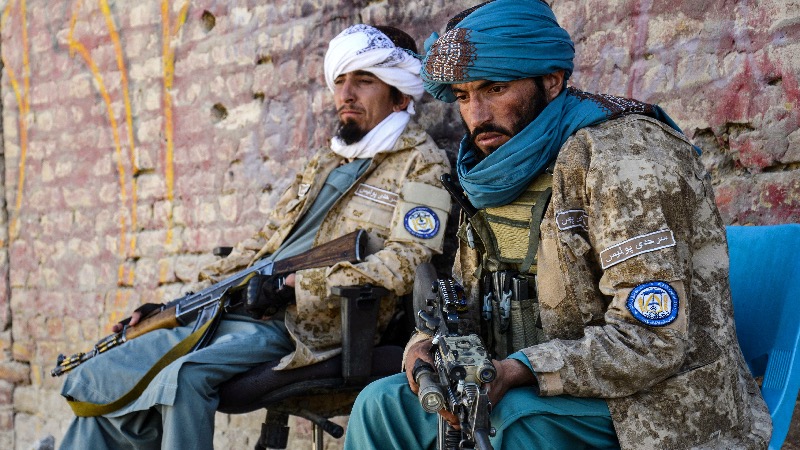 Image Credit: Contributor / Contributor / Getty
Image Credit: Contributor / Contributor / Getty On Monday Russia’s Deputy Chairman of the Security Council Dmitry Medvedev said that if President Donald Trump gives Ukraine long-range Tomahawk missiles (which are capable of carrying nuclear payloads), Russia may be forced to respond. The Russian official hinted that the response may even be nuclear in nature. Notably, Russia’s current doctrine allows a nuclear response to non-nuclear threats.
Medvedev warned that the result of Washington giving Kiev long-range missiles could end badly for everyone, especially President Trump.
“How should Russia respond? Exactly!” Medvedev said on Telegram, appearing to hint that Moscow’s response would be nuclear.
On Sunday Trump reiterated the statement he’s been making over the last week – that he may give Ukraine Tomahawk missiles if Russian President Vladimir Putin fails to end the Ukraine war.
“Yeah, I might tell him (Putin), if the war is not settled, we may very well do it,” Trump said. “We may not, but we may do it… Do they want to have Tomahawks going in their direction? I don’t think so.”
“One can only hope that this is another empty threat… Like sending nuclear submarines closer to Russia,” Medvedev said in response.
In August Trump said that he is deploying nuclear submarines in response to Russian Deputy Chairman of the Security Council Dmitry Medvedev’s statements. Medvedev’s statements were in response to Trump’s criticism of him. Notably, nuclear submarines are made to be near impossible to track while underwater, so the announcement appears to be political in nature, rather than some grand military strategy.
Of note, Trump recently said that his intention is not to escalate the conflict. It remains unclear how long-range nuclear-capable missiles would not escalate the conflict.
“I think I want to find out what they’re doing with them,” Trump said of Ukraine’s Tomahawk request on September 29. “I would ask some questions. I’m not looking to escalate that war.”
When President-via-autopen Joe Biden gave Ukraine approval to launch long-range nuclear-capable missiles deep into Russia in November 2024, a thermonuclear world war nearly kicked off.
Adding heat to the atomic threat fire, NATO kicked off their annual nuclear war drills on Monday. The military organization’s Secretary General Mark Rutte said these drills send a “clear signal to any potential adversary.”
“We need to do this because it helps us make sure that our nuclear deterrent remains as credible, safe, secure, and effective as possible,” Rutte said.
RT detailed Moscow’s response:
The two-week Steadfast Noon exercise comes amid what Moscow has described as rampant anti-Russian hysteria among the Western European nations, accusing NATO of militarizing the continent and preparing for a direct confrontation.
This year’s Steadfast Noon nuclear drill is hosted by the Netherlands. Volkel Air Base serves as the primary operating site. The drill’s supporting elements are stationed at bases in Belgium, the U.K. and Denmark.
NATO said the exercise will involve about 70 aircraft from 14 member states. These include conventional and dual-capable aircraft that specialize in surveillance, air-to-air refueling and command-and-control. About 2,000 personnel are said to be involved. The bloc has reassured the world that no nuclear weapons will be used in the drill.
Russia’s Presidential Aide Kirill Dmitriev countered recent statements by Russia’s Deputy Foreign Minister Sergey Ryabkov.
On Wednesday Ryabkov said that the momentum toward peace in the Ukraine war which was constructed during the August 15 Pursuing Peace summit in Alaska between President Donald Trump and Russian President Vladimir Putin is largely gone now.
“Unfortunately, the powerful momentum from the Anchorage [summit] in favor of [peace] agreements has largely been undermined through efforts by opponents and efforts by supporters of ‘war till the last Ukrainian’, mostly among the Europeans,” Ryabkov said.
On Monday Dmitriev said Moscow’s engagement with Trump’s team is ongoing, dismissing any claims that Trump envoy Steve Witkoff’s influence has waned.
Moscow and Washington continue to engage based on the agreements reached at the Alaska summit, despite earlier reports that US special envoy Steve Witkoff had lost influence within the administration of President Donald Trump, Russian presidential aide Kirill Dmitriev has said.
On Friday the Kremlin also countered the sentiment of Ryabkov.
Kremlin spokesman Dmitry Peskov said that the “spirit” and “impulse” to reach a negotiated settlement in the Ukraine war which was generated at the Pursuing Peace summit is still alive.
Watch Live! Russia Is In ‘Phase Zero’ As Putin Prepares To Attack Europe Claims NATO.
— Alex Jones (@RealAlexJones) October 13, 2025
Plus Chuck Schumer Calls For “Forceful Uprising” Against Trump https://t.co/Ye1802l2cD


